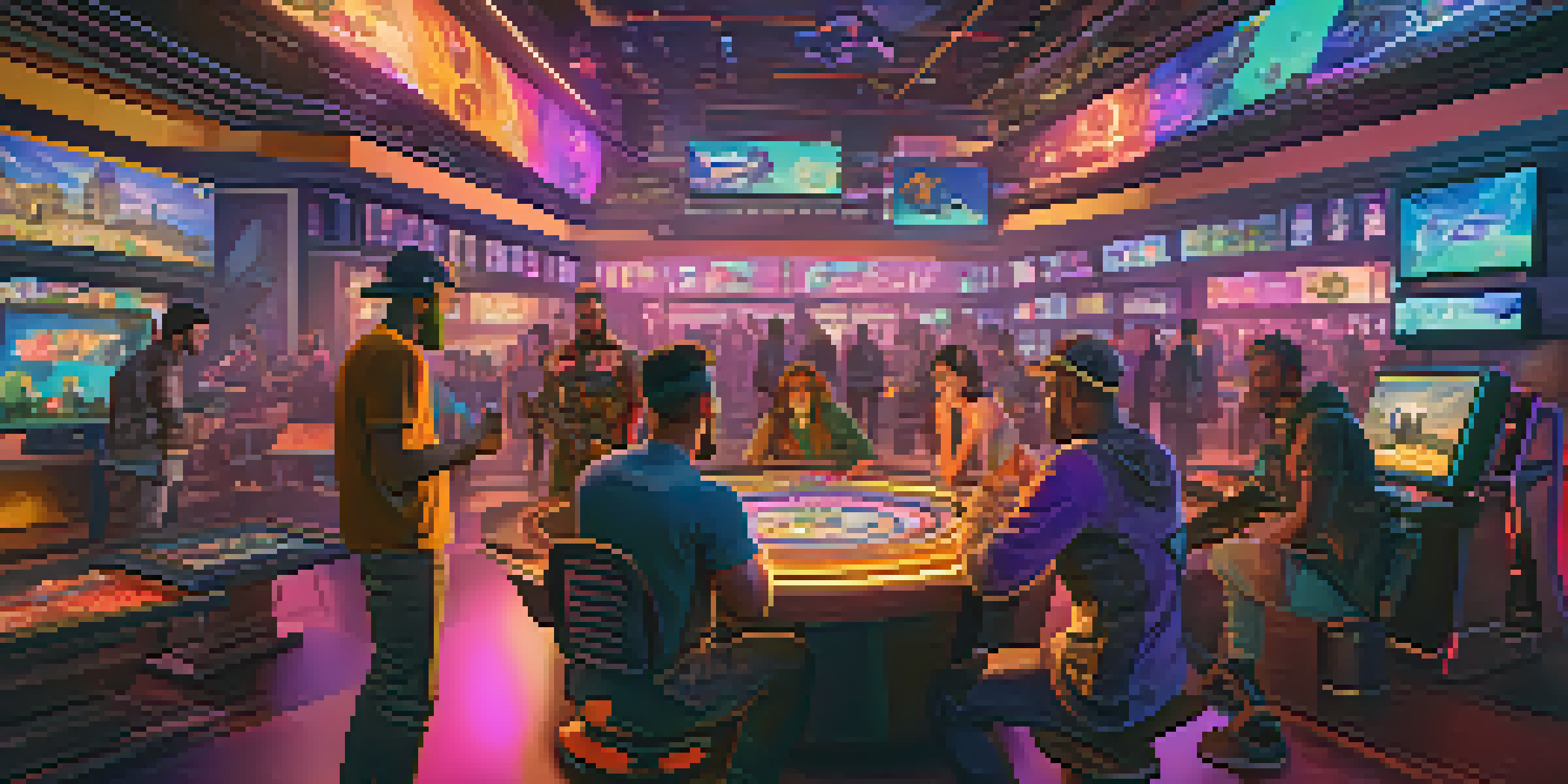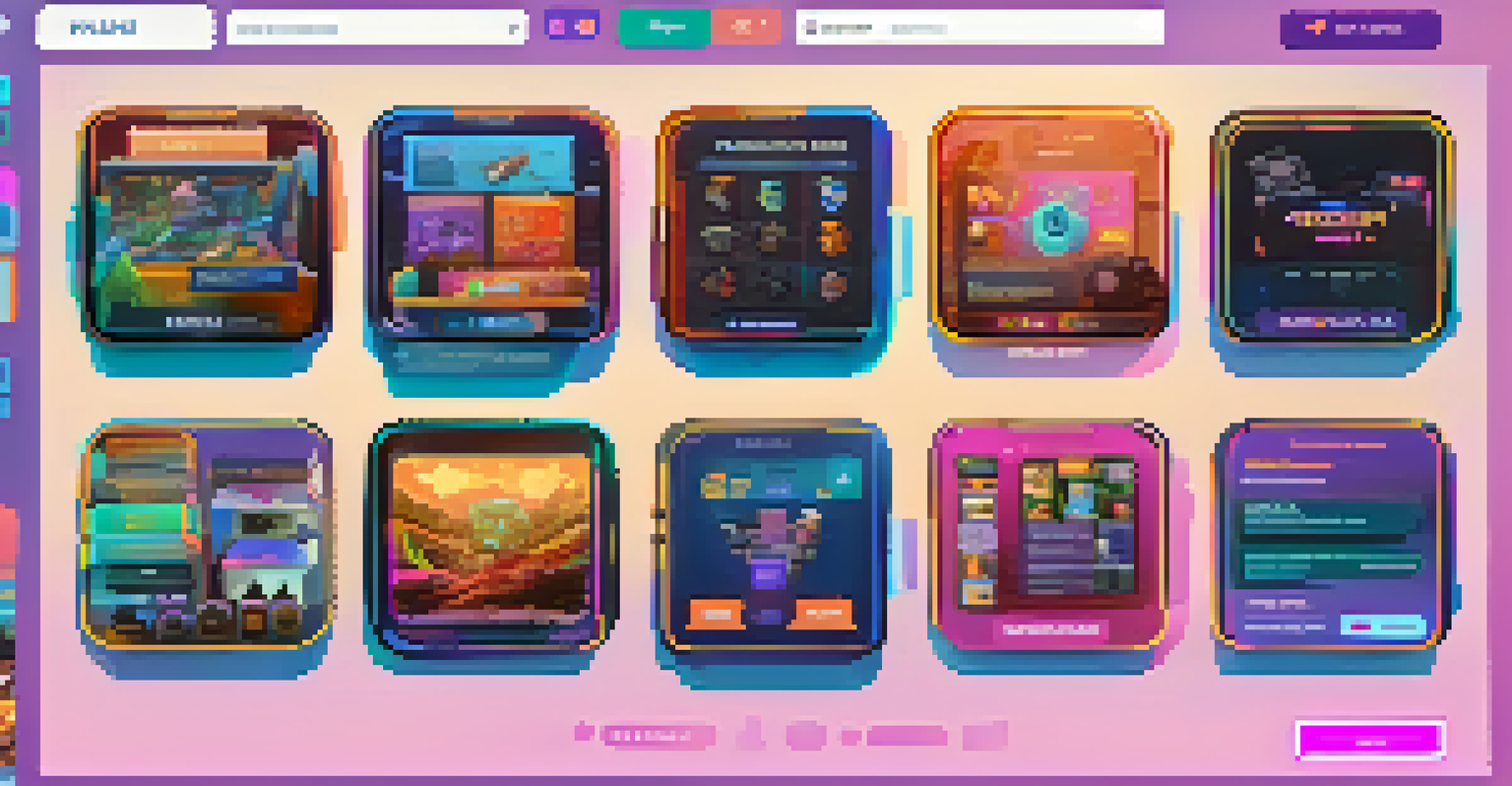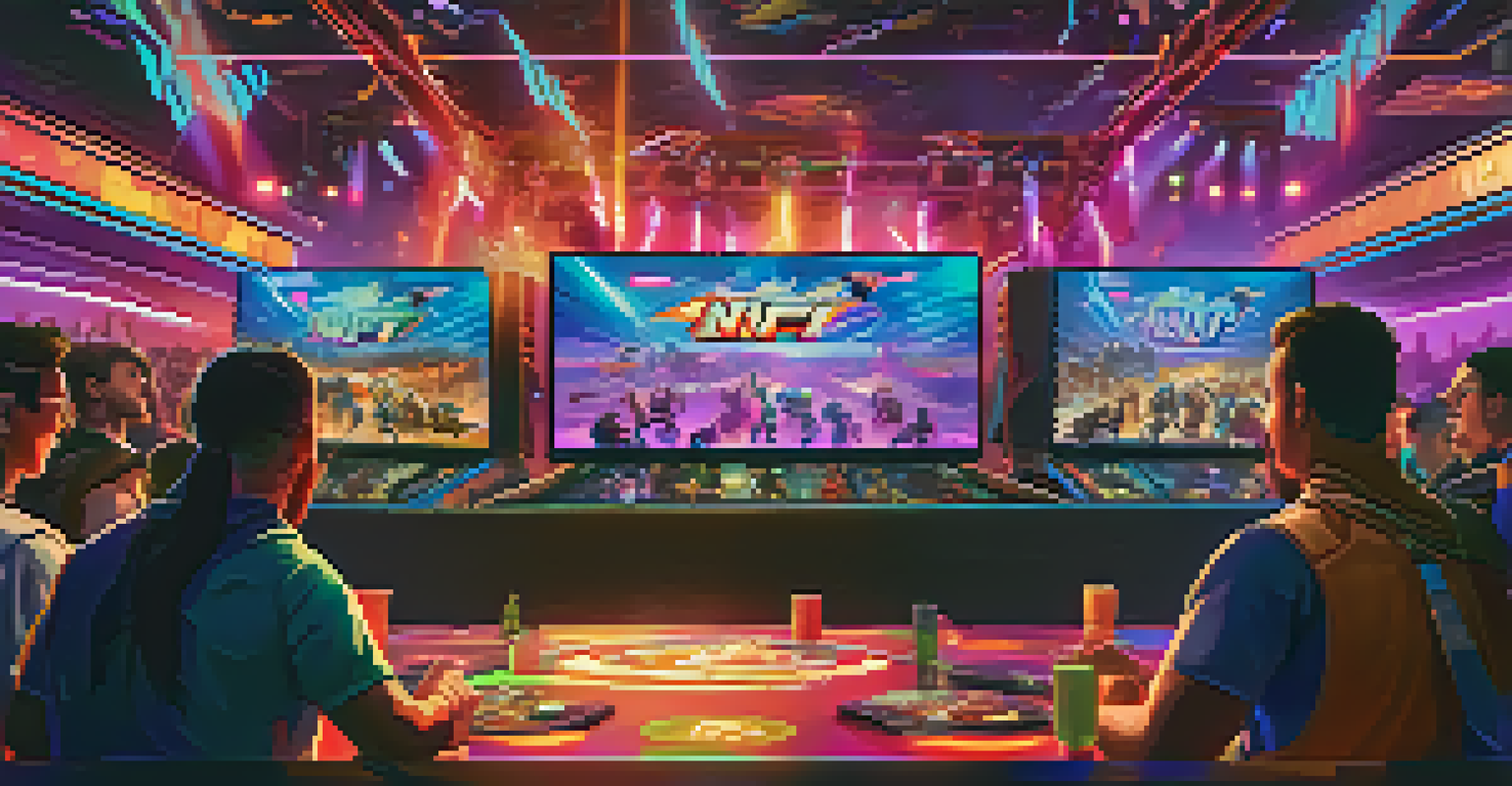NFTs in Gaming: Establishing Trust in Virtual Economies

Understanding NFTs and Their Role in Gaming
Non-fungible tokens, or NFTs, are unique digital assets verified using blockchain technology. Unlike cryptocurrencies, which are interchangeable, each NFT represents a specific item, artwork, or character in a game. This uniqueness makes NFTs particularly valuable in gaming, where players can own, trade, and sell their virtual items.
NFTs represent a revolution in how we think about ownership and value in digital spaces.
In gaming, NFTs can take the form of virtual land, skins, or even characters, providing players with a sense of ownership. This ownership can enhance player engagement, as the items they acquire are not just temporary; they are theirs to keep or trade. Imagine a player spending hours leveling up a character, only to know they can sell it later for real-world value—this is where NFTs shine.
Moreover, the integration of NFTs in gaming fosters a sense of community. Players can trade their unique items in marketplaces, creating a vibrant economy. As players interact and transact, trust becomes a crucial factor, and that’s where the transparency of blockchain technology plays a pivotal role.
Building Trust Through Transparency in Transactions
One of the primary benefits of NFTs in gaming is the transparency they provide. Each transaction involving an NFT is recorded on the blockchain, making it easy for players to verify ownership and authenticity. This transparency helps to build trust within the gaming community, as players can be confident that they are buying genuine items.

Consider a scenario where a player is interested in purchasing a rare in-game item. With NFTs, they can easily trace the item’s history, confirming its previous owners and the price it fetched in past transactions. This level of insight reduces the risk of scams and fraud, fostering a safer trading environment.
NFTs Enhance Ownership in Gaming
By enabling players to own, trade, and sell unique virtual items, NFTs significantly increase engagement and investment in gaming.
Additionally, the immutable nature of blockchain ensures that once a transaction is recorded, it cannot be altered or deleted. This permanence reinforces the trust players have in the virtual economy, as they know their transactions are secure and verifiable.
Enhancing Player Experiences with Unique Assets
NFTs allow for unparalleled customization in gaming, enabling players to own unique assets that reflect their personal style. Players can acquire distinctive skins, weapons, or even entire game worlds that no one else can replicate. This level of uniqueness enriches the overall gaming experience, making it more enjoyable and immersive.
The blockchain is a trust machine, and if you can trust the technology, you can trust the transactions on it.
Imagine a player who collects rare skins for their character. Each skin not only enhances their character's appearance but also becomes a badge of honor among peers. The ability to showcase these unique items can boost a player's status within the gaming community, further incentivizing engagement.
Furthermore, as players invest in these unique assets, the emotional attachment to their items grows. This emotional investment deepens their connection to the game, making them more likely to continue playing and participating in the game's economy.
The Role of Community in NFT Gaming Economies
Community plays a vital role in the success of NFT gaming economies. Players who actively participate in trading and interacting with NFTs contribute to a vibrant marketplace. This interaction not only drives the economy but also cultivates a sense of belonging among players.
Consider a game where players can form guilds to trade and battle together using their NFTs. This collaboration fosters camaraderie and enhances the gaming experience. As players work together, they build trust not only in the game but also with each other.
Transparency Builds Community Trust
The blockchain's transparency allows players to verify ownership and authenticity of NFTs, fostering trust and reducing the risk of scams.
Moreover, community-driven events, such as tournaments or trading fairs, can elevate the importance of NFTs in gaming. These events encourage players to engage, trade, and showcase their unique assets, further solidifying the role of community in establishing a trustworthy virtual economy.
Addressing Challenges in NFT Gaming Markets
While NFTs present exciting opportunities in gaming, they also come with challenges that need to be addressed. Issues such as high transaction fees and environmental concerns related to blockchain technology can deter players from fully embracing NFTs. Developers must find solutions to these problems to ensure a smooth gaming experience.
For instance, some gaming companies are exploring more energy-efficient blockchain technologies to reduce their ecological footprint. By adopting these alternatives, they can alleviate environmental concerns while still offering the benefits of NFT ownership.
Additionally, educating players about the value and functionality of NFTs is crucial. Many players may be hesitant or unsure about this new technology, and providing clear information can help demystify NFTs, making them more accessible and appealing.
Future Trends: NFTs and Evolving Game Mechanics
As the gaming landscape continues to evolve, NFTs are likely to play a significant role in shaping future game mechanics. Developers are increasingly experimenting with integrating NFTs into gameplay, allowing players to earn rewards and unlock unique experiences through their virtual assets. This trend could revolutionize how players interact with games.
Imagine a game where players can earn NFTs by completing challenges or reaching milestones. These NFTs could unlock special abilities or exclusive content, providing an incentive for players to engage more deeply with the game. This gamification of NFTs can enhance the overall player experience.
Community Drives NFT Marketplace Growth
Active player participation in trading and events cultivates a vibrant marketplace, enhancing the sense of belonging and trust among gamers.
As more developers recognize the potential of NFTs, we can expect to see innovative uses of this technology that further establish trust within virtual economies. The future of gaming is bright, and NFTs are at the forefront of this exciting evolution.
Conclusion: Trust and Value in the Future of Gaming
In conclusion, NFTs have the potential to significantly enhance trust and value within gaming economies. Through transparency, unique assets, and community engagement, NFTs can create a more vibrant and trustworthy gaming environment. As players gain more confidence in these digital assets, their willingness to invest and participate will likely grow.
By addressing challenges and continuing to innovate, the gaming industry can harness the power of NFTs to foster deeper connections between players and their virtual worlds. This evolution not only benefits players but also paves the way for developers to create more engaging experiences.

Ultimately, the integration of NFTs in gaming is more than a trend; it represents a shift towards a more interactive and player-driven economy. As this landscape continues to evolve, we can look forward to a future where trust and value thrive in virtual economies.